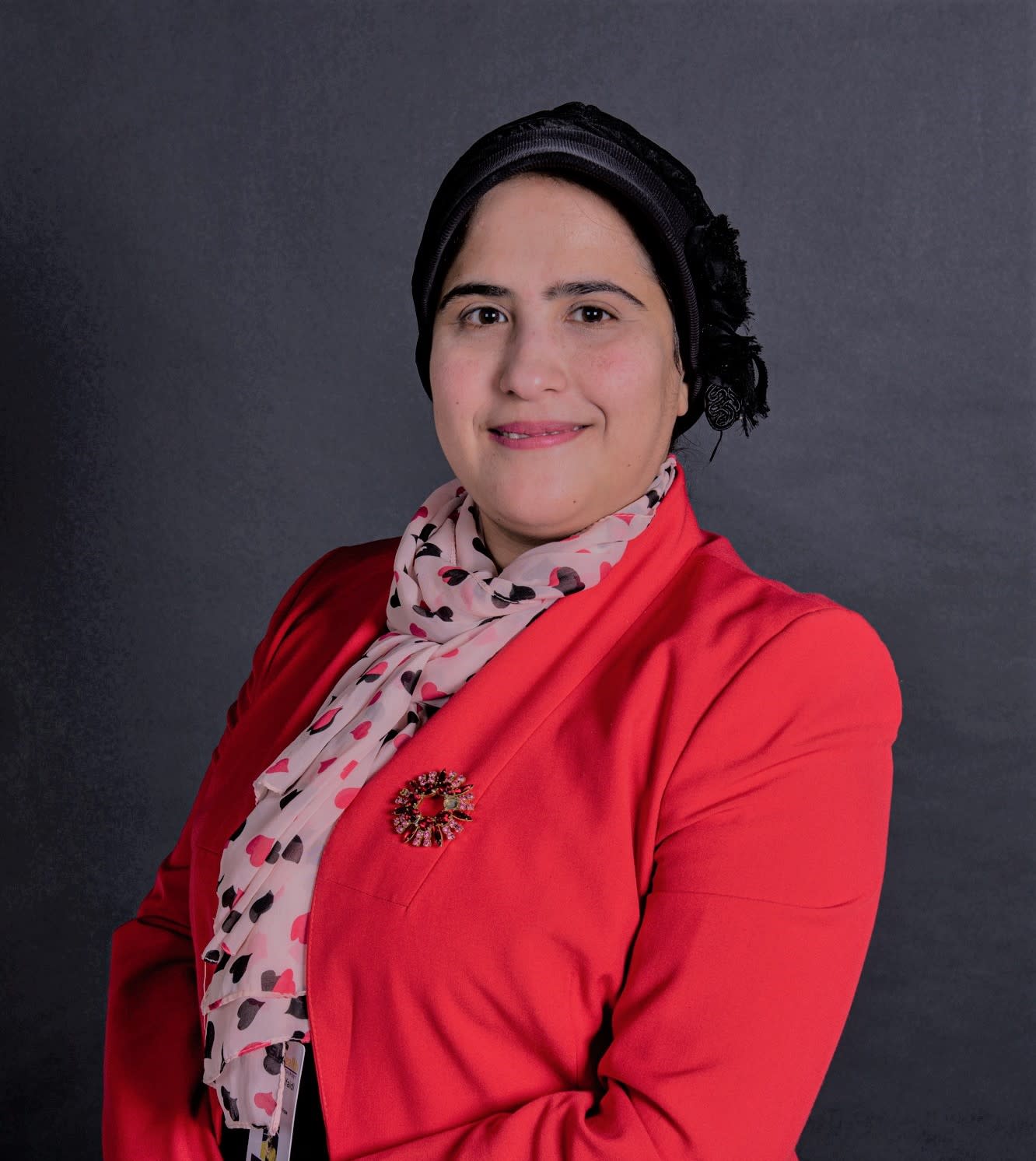Lessons Learned - June 2025
Mabruka Alfaidi, University of Nebraska Medical Center

I have always been grateful to NAVBO as a community. I joined NAVBO first as a PhD student in 2014, and since then, I have gained a lot of experience through the extensive training to prepare me to be a PI. This started by joining the NAVBO’s extensive week of training in vascular biology (Vasculata) and then the versatile NAVBO workshops, round tables for career development in academia, online and offline courses, and other career resources.
I am an assistant professor at the Department of Cellular & Integrative Physiology at the University of Nebraska Medical Center in Omaha, Nebraska. I earned my PhD from the University of Sheffield, UK, on interleukin-1 release mechanisms from the coronary endothelium in Sheila Francis’ lab. Immediately following that, I moved to the USA, where I completed my postdoctoral training at Louisiana State University in the lab of Dr. A. Wayne Orr. My postdoctoral training was on mechanotransduction and endothelial activation in early atherosclerosis. Since my independence, my research lab has been investigating novel therapeutic targets in severely advanced human coronary atherosclerotic disease. I am grateful to my mentors, colleagues, all the trainees I have trained and interacted with, including the curious residents, cardiology fellows, postdoctoral fellows, medical students, PhD students, undergraduates, and high school students.
Here are a few critical lessons I learnt throughout the process:
Be patient; it does take time. Be true and committed to the process: One major lesson I have learnt is time, time, and time. The first 6 months of independence are essential. It is going to be you and only you. Think about the first experiment you will run in the lab, prepare the resources, and spend money to run that first experiment smoothly. Set small tasks to achieve every single day and celebrate achieving them. Another essential task early on is never to rush into hiring. While you need to identify people who work in your lab, think of who your first hire could be, and be slow at hiring. I wish I had known before going into the process how to perform critical interviews and select lab personnel. The entire process, from reviewing CVs to Zoom or an in-person interview, is a time-consuming but crucial step for the selection. Also, letters of recommendation are great, but specify a time for a phone call to ask the references the right questions for the position and assess the fitness of the candidates for your lab. Talk with HR at your school and get involved in drafting the offer letters. The first week at work for new hires is essential; review your lab goals and policy and prepare onboarding documents.|
Regardless of your early goals, whether to publish the paper or to submit the grant, having key lab personnel who can be trained by you and then train others within the lab is very important for your research growth and sustainability.
Early On, Set a Research Culture in the Lab: Articulate a clear, detailed lab culture and share your expectations with your lab personnel. It’s essential to have a lab note specifying each person’s role and the overall lab policy and culture, matching your institution’s research policy. I shared my expectations, goals, and the plan for the type of training, matching their career goals. The lab directions were also listed in the lab notes. A lab note is a live document that must be updated as the lab grows and the research directions progress. Managing people in the lab is challenging. One experience I learnt is that each person’s needs are different than the others. The training and mentoring are also tailored to different trainees. So, expect that and manage your time and mentoring style accordingly. Having time to celebrate lab achievements together will be necessary for bonding and raising the team spirit.
One last thing I want to share here is that time is money, but patience is of the essence! Enjoy the ride; there is no right or wrong way. Learn and reflect, be flexible, identify challenges early on and overcome them, meet friends, family, and colleagues, and be open and share the experience. Always look at the big picture: how far you have come and can go!